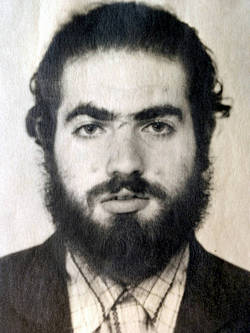
Grigori Yakovlevich Perelman (Russian: Григорий Яковлевич Перельман, IPA: [ɡrʲɪˈɡorʲɪj ˈjakəvlʲɪvʲɪtɕ pʲɪrʲɪlʲˈman] ; born 13 June 1966) is a Russian mathematician and geometer who is known for his contributions to the fields of geometric analysis, Riemannian geometry, and geometric topology. In 2005, Perelman resigned from his research post in Steklov Institute of Mathematics and in 2006 stated that he had quit professional mathematics, owing to feeling disappointed over the ethical standards in the field. He lives in seclusion in Saint Petersburg and has declined requests for interviews since 2006.
In the 1990s, partly in collaboration with Yuri Burago, Mikhael Gromov, and Anton Petrunin, he made contributions to the study of Alexandrov spaces. In 1994, he proved the soul conjecture in Riemannian geometry, which had been an open problem for the previous 20 years. In 2002 and 2003, he developed new techniques in the analysis of Ricci flow, and proved the Poincaré conjecture and Thurston's geometrization conjecture, the former of which had been a famous open problem in mathematics for the past century. The full details of Perelman's work were filled in and explained by various authors over the following several years.
In August 2006, Perelman was offered the Fields Medal for "his contributions to geometry and his revolutionary insights into the analytical and geometric structure of the Ricci flow", but he declined the award, stating: "I'm not interested in money or fame; I don't want to be on display like an animal in a zoo." On 22 December 2006, the scientific journal Science recognized Perelman's proof of the Poincaré conjecture as the scientific "Breakthrough of the Year", the first such recognition in the area of mathematics.
On 18 March 2010, it was announced that he had met the criteria to receive the first Clay Millennium Prize for resolution of the Poincaré conjecture. On 1 July 2010, he rejected the prize of one million dollars, saying that he considered the decision of the board of the Clay Institute to be unfair, in that his contribution to solving the Poincaré conjecture was no greater than that of Richard S. Hamilton, the mathematician who pioneered the Ricci flow partly with the aim of attacking the conjecture. He had previously rejected the prestigious prize of the European Mathematical Society in 1996.
Source : Wikipedia